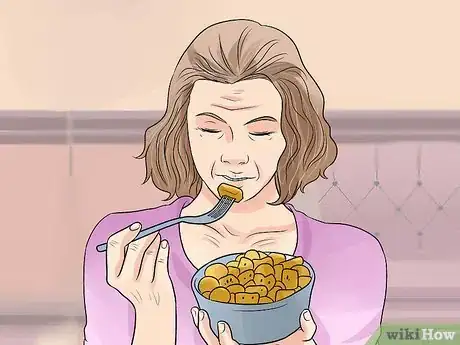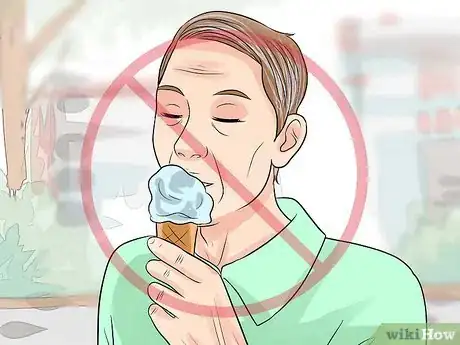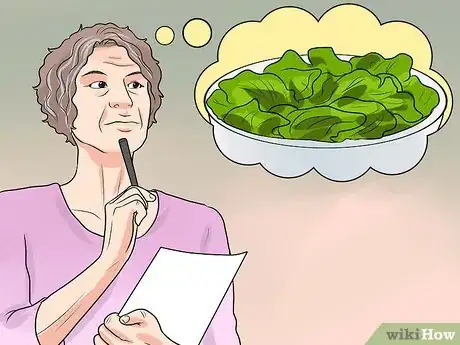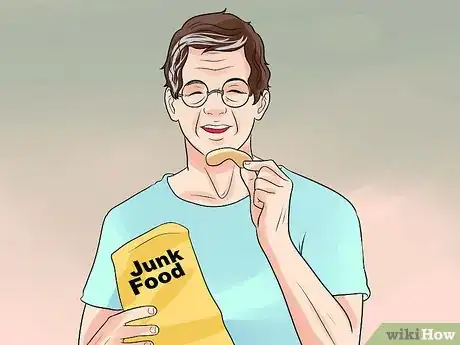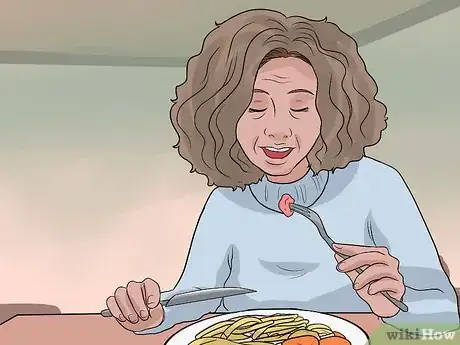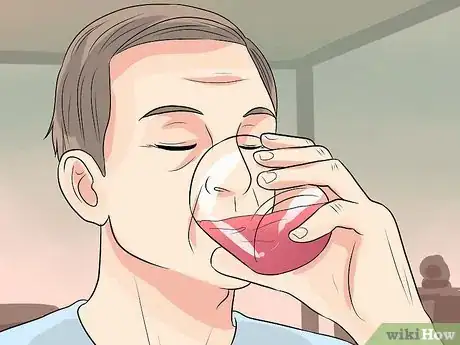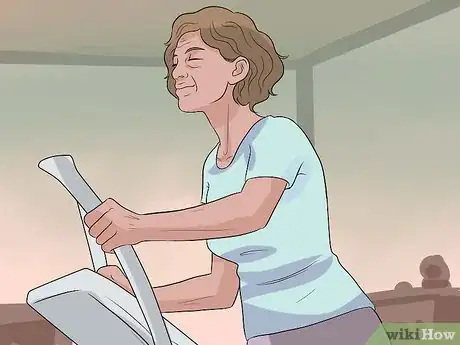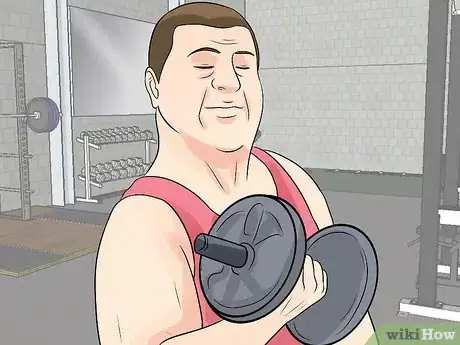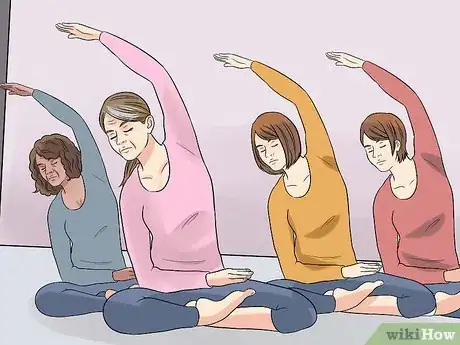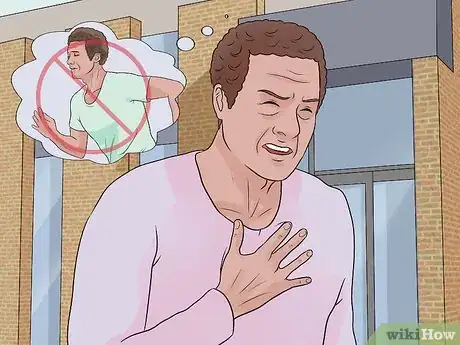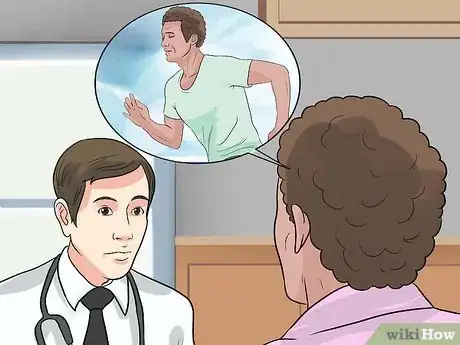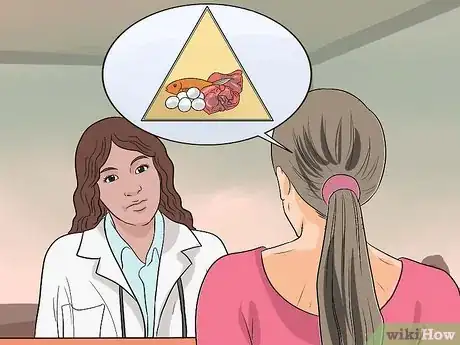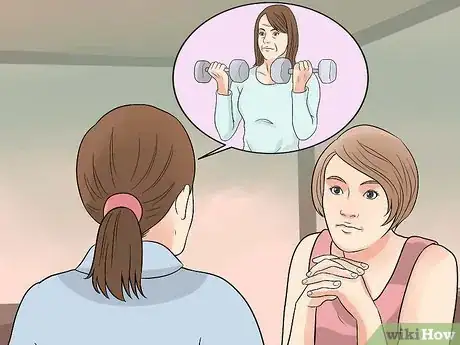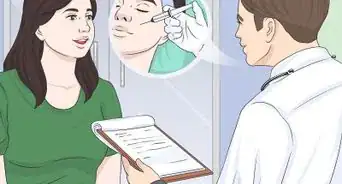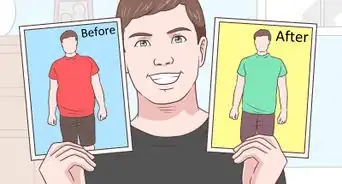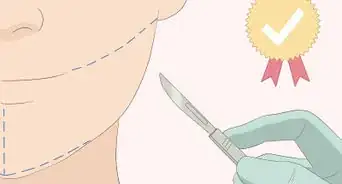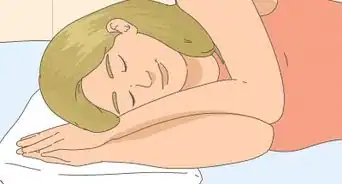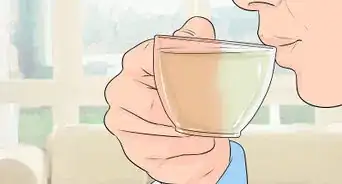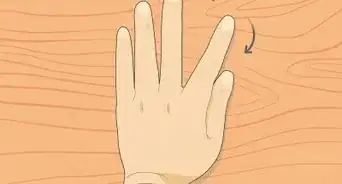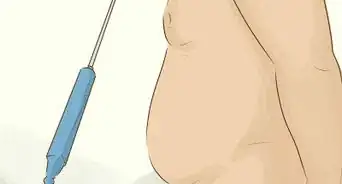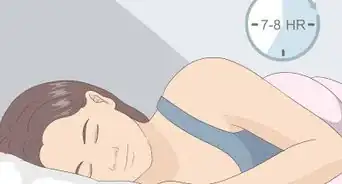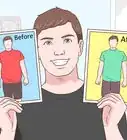This article was co-authored by Pouya Shafipour, MD, MS. Dr. Pouya Shafipour is a Family Medicine Specialist, Primary Care Physician, and a Weight Loss Specialist based in Santa Monica, California. Dr. Shafipour specializes in dietary, nutritional, behavioral, and exercise counseling to manage obesity and medical conditions related to excessive weight gain or loss. Dr. Shafipour received a BS in Molecular and Cell Biology from the University of California, Berkeley, an MS in Physiology and Biophysics from Georgetown University, and an MD from the Loma Linda University School of Medicine. He completed his internship in general surgery at UC Irvine and a residency in family medicine at the University of California, Los Angeles, and became board certified in family medicine in 2008.
There are 17 references cited in this article, which can be found at the bottom of the page.
This article has been viewed 225,173 times.
Losing weight at any age is difficult, but as your body changes with age, it can become increasingly hard.[1] However, maintaining a healthy weight is important for your overall well being at any age and especially as you get older.[2] If you're carrying a few extra pounds and want to lose them even with challenges such as a slowed metabolism, you can implement a sensible diet and exercise plan to help yourself get to your target weight.
Steps
Eating a Well Balanced Diet
-
1Eat healthy, regular meals. Eating healthy, balanced, and regular meals can help you lose any weight and burn fat. Foods that have moderate fat, complex carbohydrates, and are high in nutrients, for example, are best for your general health.[3]
- Stick to a diet of about 1,200-1,500 nutrient-rich calories a day, depending on how active you are.[4]
- You will get proper nutrition if you incorporate foods from the five food groups every day. The five food groups are: fruits, vegetables, grains, proteins, and dairy.[5]
- You need 1-1.5 cups of fruit per day. You can get this from eating whole fruits such as raspberries, blueberries, or strawberries, or from drinking 100% fruit juice.[6] Make sure to vary the fruits you choose so that you get a range of nutrients.
- You need 2.5-3 cups of vegetables per day. You can get this from eating whole vegetables such as broccoli, carrots, or peppers, or from drinking 100% vegetable juice.[7] Make sure to vary the vegetables you choose so that you get a range of nutrients.
- Fruits and vegetables are an excellent source of fiber, which you need more of over 60. Not only will fiber keep you regular, but it can also help you ward off heart disease, strokes, diabetes, and improve your skin. Fiber will also help you to lose weight.[8]
- You need between 5-8 ounces of grains per day, of which ½ should be whole grains. Grains include foods such as brown rice, whole wheat pasta or bread, oatmeal, or cereal.[9] Whole grains are a good source of fiber, which helps counteract the slowed digestion that can occur with age.
- You need 5-6.5 ounces of protein per day.[10] You can get protein from lean meats including beef, pork, or poultry; cooked beans; eggs; peanut butter; or nuts and seeds.[11] These will also help you to build and maintain muscle.
- Aim for 2-3 cups, or 12 oz., of dairy per day.[12] You can get dairy from cheese, yogurt, milk, soymilk, or even ice cream.[13] These will help build and maintain strong bones and muscles, which get weaker as we age.[14] Men 51 and over need 1000 mg calcium per day, while women need 1,200 mg per day. Take supplements if your dairy intake falls short of this goal.
- Avoid excessive amounts of sodium in your diet, which is prevalent in mass-processed foods. Your sense of taste decreases as you age, and you may want to salt your food. Try using alternative seasonings such as garlic or herbs to help you avoid excess sodium and gaining water weight.
-
2Avoid unhealthy foods, especially processed sugars and simple starches.[15] If you're trying to lose weight, it's a good idea to avoid unhealthy or junk foods, many of which are loaded with fat and calories. Potato chips, nachos, pizza, burgers, cake, and ice cream will not help you lose weight.
- Look out for hidden sugar in your food choices. As your ability to taste decreases with age, it may be difficult to detect a lot of sugar in foods, which can cause you to gain weight. Make sure to read packaging and look for terms that indicate sugar such as corn syrup, sucrose, dextrose, or maltose.
Advertisement -
3Make changes to your diet gradually. While you may be excited to completely overhaul what you're eating, it's important to gradually make changes to your overall diet. This will help you stick to eating healthy.[16]
- You can slowly replace processed foods. For example, if you eat white rice with every meal, switch to brown rice and then gradually add more vegetables and less rice.
-
4Plan meals as often as possible. Planning your meals in advance will reinforce good habits. It will also help ensure that you're getting plenty of nutrients and may even save you money.[17]
- For example, plan your breakfasts to help start off your day on the right foot. If you don't have lunch meetings, packing a healthy lunch can help you avoid buying unhealthy fast foods. If you do have a lunch meeting, order the least processed and healthiest food on the menu, such as a salad.[18]
-
5Allow yourself to have certain unhealthy foods as a reward. No person is perfect and sometimes you crave unhealthy foods. Allow yourself occasional cheat days to enjoy junk food or foods you wouldn't normally eat on your plan.[19]
-
6Eat healthy at restaurants. Eating out can help keep you social and stimulate your mind after 60. But it can also cause a major setback for many diets because of processed, high fat and calorie dishes. Consciously avoiding certain foods and making good choices at restaurants when your with friends can help you reinforce your good eating habits, continue to lose weight, and stay mentally acute.[22]
- Avoid unhealthy pitfalls like breadbaskets, fried foods, or dishes in heavy sauces such as fettucine alfredo.
- Salads or steamed vegetables and steaks are good choices of healthy and minimally processed foods.
- Avoid buffets, which are often filled with unhealthy and processed food choices and can encourage you to overeat.
- Have whole fruits instead of processed desserts.
Getting Regular Exercise
-
1Understand the benefits of regular exercise. Exercise can help anyone be and feel healthy. But it can also help you shed excess weight. Understanding the benefits of exercise can help get fit and lose weight..[23]
-
2Warm up and cool down as a part of exercise sessions. Whenever you have an exercise session, make sure you warm up before them and spend some time cooling down once you're finished. This will help prepare your body to exercise as well as stabilize your temperature and blood pressure.[27]
- Warm up with a low-impact and light activity, such as walking, for 5-10 minutes.[28]
- Cool down with a low-impact activity such as light jogging or walking for 5-10 minutes.[29]
- Being and staying properly hydrated for exercise is important. Make sure to have at least 64 ounces of liquid a day to stay hydrated and add 8 ounces of water for every hour of activity.[30]
-
3Participate in cardiovascular exercise. Doing low-impact, moderate intensity cardiovascular exercise can help you maintain your fitness and may also help you lose weight. Discuss your plan to do cardio training with your doctor and certified fitness professional before you start.
- People over 60 can do at least 30 minutes of moderate exercise all or most days of the week.[31] If you can't do an activity for 30 minutes, split it up into two 15 minute sessions.[32]
- If you are very active, you may be able to keep up with these workouts with your doctor's approval and if you feel comfortable.[33]
- If you are just beginning or need to do a lower impact activity, walking and swimming are excellent options.[34]
- You can do any type of cardio training to help you lose weight. Beyond walking and swimming, consider running, rowing, biking, or using an elliptical machine.[35]
-
4Perform strength-training exercises. In addition to cardiovascular exercise, strength training can help you lose weight.[36] It may also help ward off age-related diseases such as osteoporosis and prevent you from injuring yourself because bearing weight builds bone and muscle.[37]
- Before you begin any strength training program, consult with your doctor and maybe even with a certified trainer, who will create the best plan for your abilities and needs.
- Focus on exercises that strengthen your whole body and are specific for your needs as you age. For example, leg strengthening exercises will help support the weight of your body.[38]
- If weights are too heavy, resistance bands can provide a similar muscle building effect for people over 60.[39]
-
5Practice regular yoga or Pilates. Try a yoga or Pilates class either in a studio or online. These lower-impact activities can help strengthen and stretch your muscles while helping you to relax.[40]
- There are a wide variety of video-based yoga and Pilates courses available. You may consider purchasing DVDs, which can offer basic guided sessions for you to follow. You can also search online for videos or courses that guide you through different levels of yoga and Pilates sessions.[41]
-
6Listen to your body. If you decide to exercise to lose weight, it's important to listen to your body during any activity. This can help you identify if you're tired, need to hydrate, or are experiencing the signs of a more serious problem.
- Permit yourself to rest when you want. If you feel tired or don't want to exercise one day, allow yourself to rest. Remember that rest is an integral part of staying healthy and losing weight.[42] You may find that you don't have as much energy as you get older.[43]
- Stop exercising if you experience dizziness, headache, worsening shortness of breath, chest pain, heart palpitations or uneven and rapid heartbeat.[44]
Consulting Health and Fitness Professionals
-
1Consult your doctor about your fitness regimen and plan. If you want to lose some weight at or after the age of 60, first speak with your doctor about whether or not it's safe to continue your activities or add to them. There may be some circumstances where it may be unsafe for you to do certain activities.[45]
- Exercise is generally good for you. Your doctor might suggest you not exercise if you have heart and lung problems or high blood pressure.[46]
- Talk to your doctor about the types of exercise you want to do to make sure they're safe. Your doctor may suggest meeting with a fitness professional to help you find the best and safest exercises for you.
- Loneliness and depression can have an affect on your appetite and diet. If you are suffering from symptoms of either, speak to your doctor about how best to treat both conditions and lose weight.
- Certain medications may alter your sense of taste, making you more likely to consume more sugar or salt, which can make you gain weight. Talk to your doctor if you suspect your medication is causing you to gain weight.
-
2Consult a registered dietician. Even if you don't have special dietary needs, you will need to adjust your diet to lose weight and stay healthy because of slowed digestion and metabolism that comes with age. Consult a registered dietician to discuss your specific dietary needs and how you can best get all of the vitamins and nutrients necessary to maintain your health and fitness.[47]
- Your metabolism slows every year after the age of 40. Because of this, you may gain weight if you continue to eat the same amount.
- Your digestion also slows down as you age and may make it difficult for you to process vitamins, minerals, and other nutrients such as folic acid.
- If you are retired, you may find it difficult to eat healthy on a decreased budget. A dietician can help you make sensible and healthy choices on the cheap.
- Your doctor or local hospital can suggest a registered dietician to help you meet your dietary needs and fitness goals.[48]
-
3Consult a certified fitness professional. If you are exercise regularly and want to continue this activity to lose weight, consult a certified fitness professional once you have your doctor's stamp of approval. She may be able to help you tailor an exercise regimen to help you drop excess pounds.
- Falls are a common reason for injury after 60.[49] Working out will make your bones and muscles stronger, and help protect you from falls and from muscle tears or bone breaks.[50]
- Even moderate exercise can help you prevent and control chronic health issues that are prevalent in aging persons, including diabetes.[51]
- Studies have shown that exercise can also help maintain or improve brain function, which decreased as we age.[52]
- A certified fitness professional can help you get fit and lose weight even if you haven't been working out. Getting or increasing fitness as you age can help you stay healthy and ward off aging and age-related diseases such as osteoporosis or diabetes.[53]
- A certified fitness professional may tell you it's safe to continue whatever exercises you do as long as you feel well and comfortable and have the ok from your doctor.[54]
Expert Q&A
-
QuestionHow can I get in shape at 60?
 Pouya Shafipour, MD, MSDr. Pouya Shafipour is a Family Medicine Specialist, Primary Care Physician, and a Weight Loss Specialist based in Santa Monica, California. Dr. Shafipour specializes in dietary, nutritional, behavioral, and exercise counseling to manage obesity and medical conditions related to excessive weight gain or loss. Dr. Shafipour received a BS in Molecular and Cell Biology from the University of California, Berkeley, an MS in Physiology and Biophysics from Georgetown University, and an MD from the Loma Linda University School of Medicine. He completed his internship in general surgery at UC Irvine and a residency in family medicine at the University of California, Los Angeles, and became board certified in family medicine in 2008.
Pouya Shafipour, MD, MSDr. Pouya Shafipour is a Family Medicine Specialist, Primary Care Physician, and a Weight Loss Specialist based in Santa Monica, California. Dr. Shafipour specializes in dietary, nutritional, behavioral, and exercise counseling to manage obesity and medical conditions related to excessive weight gain or loss. Dr. Shafipour received a BS in Molecular and Cell Biology from the University of California, Berkeley, an MS in Physiology and Biophysics from Georgetown University, and an MD from the Loma Linda University School of Medicine. He completed his internship in general surgery at UC Irvine and a residency in family medicine at the University of California, Los Angeles, and became board certified in family medicine in 2008.
Board Certified Family Medicine Specialist Stay away from starchy, refined carbs such as bread, crackers, pasta, rice, cereal, and baked goods. Eliminating these foods can also help you lose weight overall. These can cause spikes in your blood sugar and may exacerbate or lead to diabetes.
Stay away from starchy, refined carbs such as bread, crackers, pasta, rice, cereal, and baked goods. Eliminating these foods can also help you lose weight overall. These can cause spikes in your blood sugar and may exacerbate or lead to diabetes. -
QuestionHow can a 60 year old lose belly fat?
 Lyssandra GuerraLyssandra Guerra is a Certified Nutrition & Wellness Consultant and the Founder of Native Palms Nutrition based in Oakland, California. She has over five years of nutrition coaching experience and specializes in providing support to overcome digestive issues, food sensitivities, sugar cravings, and other related dilemmas. She received her holistic nutrition certification from the Bauman College: Holistic Nutrition and Culinary Arts in 2014.
Lyssandra GuerraLyssandra Guerra is a Certified Nutrition & Wellness Consultant and the Founder of Native Palms Nutrition based in Oakland, California. She has over five years of nutrition coaching experience and specializes in providing support to overcome digestive issues, food sensitivities, sugar cravings, and other related dilemmas. She received her holistic nutrition certification from the Bauman College: Holistic Nutrition and Culinary Arts in 2014.
Certified Nutrition & Wellness Consultant Keep your stress levels down, plan your meals out ahead of time, and avoid unhealthy foods. Stay consistent and avoid eating too late in the day. As you get older, you may want to incorporate more fiber and less sugar into your diet. A lot of this just comes down to planning out what you're going to eat ahead of time, though. The more preparation you can do, the healthier your eating habits will be.
Keep your stress levels down, plan your meals out ahead of time, and avoid unhealthy foods. Stay consistent and avoid eating too late in the day. As you get older, you may want to incorporate more fiber and less sugar into your diet. A lot of this just comes down to planning out what you're going to eat ahead of time, though. The more preparation you can do, the healthier your eating habits will be. -
QuestionWill being postmenopausal affect weight loss?
 Patricia Somers, RD, PhDPatricia Somers is a Registered Dietitian and an Associate Professor of the Department of Educational Leadership and Policy at the University of Texas at Austin. She received her RD from the Academy of Nutrition and Dietetics in 1979 and her PhD in Educational Administration (Higher Education Specialization) from the University of New Orleans. She received an Emerging Scholar Award from the American Association of University Women and the Faculty Excellence Award in Research from the University of Arkansas, Little Rock.
Patricia Somers, RD, PhDPatricia Somers is a Registered Dietitian and an Associate Professor of the Department of Educational Leadership and Policy at the University of Texas at Austin. She received her RD from the Academy of Nutrition and Dietetics in 1979 and her PhD in Educational Administration (Higher Education Specialization) from the University of New Orleans. She received an Emerging Scholar Award from the American Association of University Women and the Faculty Excellence Award in Research from the University of Arkansas, Little Rock.
Registered Dietitian For many women, menopause is accompanied by weight gain. As we age, we need fewer calories. Eat a healthy diet with reduced calories and stay physically active to manage your weight.
For many women, menopause is accompanied by weight gain. As we age, we need fewer calories. Eat a healthy diet with reduced calories and stay physically active to manage your weight.
Warnings
- Do not allow yourself to become easily discouraged. It takes time to lose weight safely.⧼thumbs_response⧽
References
- ↑ http://www.huffingtonpost.com/2014/12/09/losing-weight-when-you-are-older_n_6257216.html
- ↑ http://www.nlm.nih.gov/medlineplus/ency/article/003998.htm
- ↑ Pouya Shafipour, MD, MS. Board Certified Family Medicine Specialist. Expert Interview. 24 April 2020.
- ↑ http://www.eatright.org/resource/health/weight-loss/your-health-and-your-weight/your-health-and-your-weight
- ↑ https://www.choosemyplate.gov/
- ↑ https://www.choosemyplate.gov/eathealthy/fruits
- ↑ https://www.choosemyplate.gov/eathealthy/vegetables
- ↑ http://familydoctor.org/familydoctor/en/seniors/staying-healthy/good-health-habits-at-age-60-and-beyond.html
- ↑ https://www.choosemyplate.gov/eathealthy/grains
- ↑ https://www.choosemyplate.gov/eathealthy/protein-foods
- ↑ https://www.choosemyplate.gov/eathealthy/protein-foods
- ↑ https://www.choosemyplate.gov/eathealthy/dairy
- ↑ https://www.choosemyplate.gov/eathealthy/dairy
- ↑ http://familydoctor.org/familydoctor/en/seniors/staying-healthy/good-health-habits-at-age-60-and-beyond.html
- ↑ Pouya Shafipour, MD, MS. Board Certified Family Medicine Specialist. Expert Interview. 24 April 2020.
- ↑ Pouya Shafipour, MD, MS. Board Certified Family Medicine Specialist. Expert Interview. 24 April 2020.
- ↑ http://www.cdc.gov/healthyweight/losing_weight/eating_habits.html
- ↑ Lyssandra Guerra. Certified Nutrition & Wellness Consultant. Expert Interview. 25 March 2020.
- ↑ http://www.webmd.com/diet/obesity/cheat-on-your-diet-and-still-lose-weight
- ↑ http://www.webmd.com/diet/obesity/cheat-on-your-diet-and-still-lose-weight
- ↑ http://www.cdc.gov/healthyweight/losing_weight/eating_habits.html
- ↑ Lyssandra Guerra. Certified Nutrition & Wellness Consultant. Expert Interview. 25 March 2020.
- ↑ http://www.nlm.nih.gov/medlineplus/ency/article/003998.htm
- ↑ http://www.nlm.nih.gov/medlineplus/ency/article/003998.htm
- ↑ http://www.huffingtonpost.com/2014/12/09/losing-weight-when-you-are-older_n_6257216.html
- ↑ http://www.huffingtonpost.com/2014/12/09/losing-weight-when-you-are-older_n_6257216.html
- ↑ http://orthoinfo.aaos.org/topic.cfm?topic=a00531
- ↑ http://orthoinfo.aaos.org/topic.cfm?topic=a00531
- ↑ http://orthoinfo.aaos.org/topic.cfm?topic=a00531
- ↑ http://orthoinfo.aaos.org/topic.cfm?topic=a00531
- ↑ Pouya Shafipour, MD, MS. Board Certified Family Medicine Specialist. Expert Interview. 24 April 2020.
- ↑ http://familydoctor.org/familydoctor/en/seniors/staying-healthy/good-health-habits-at-age-60-and-beyond.html
- ↑ http://orthoinfo.aaos.org/topic.cfm?topic=a00531
- ↑ http://orthoinfo.aaos.org/topic.cfm?topic=a00531
- ↑ http://orthoinfo.aaos.org/topic.cfm?topic=a00531
- ↑ http://orthoinfo.aaos.org/topic.cfm?topic=a00531
- ↑ http://familydoctor.org/familydoctor/en/seniors/staying-healthy/good-health-habits-at-age-60-and-beyond.html
- ↑ http://orthoinfo.aaos.org/topic.cfm?topic=a00531
- ↑ http://familydoctor.org/familydoctor/en/seniors/staying-healthy/good-health-habits-at-age-60-and-beyond.html
- ↑ http://orthoinfo.aaos.org/topic.cfm?topic=a00531
- ↑ http://orthoinfo.aaos.org/topic.cfm?topic=a00531
- ↑ http://orthoinfo.aaos.org/topic.cfm?topic=a00531
- ↑ http://orthoinfo.aaos.org/topic.cfm?topic=a00531
- ↑ http://orthoinfo.aaos.org/topic.cfm?topic=a00531
- ↑ http://www.nlm.nih.gov/medlineplus/ency/article/003998.htm
- ↑ http://www.nlm.nih.gov/medlineplus/ency/article/003998.htm
- ↑ http://www.eatright.org/resource/food/resources/learn-more-about-rdns/10-reasons-to-visit-an-rdn
- ↑ http://www.eatright.org/resource/food/resources/learn-more-about-rdns/10-reasons-to-visit-an-rdn
- ↑ http://familydoctor.org/familydoctor/en/seniors/staying-healthy/good-health-habits-at-age-60-and-beyond.html
- ↑ http://familydoctor.org/familydoctor/en/seniors/staying-healthy/good-health-habits-at-age-60-and-beyond.html
- ↑ http://familydoctor.org/familydoctor/en/seniors/staying-healthy/good-health-habits-at-age-60-and-beyond.html
- ↑ http://familydoctor.org/familydoctor/en/seniors/staying-healthy/good-health-habits-at-age-60-and-beyond.html
- ↑ http://www.nlm.nih.gov/medlineplus/ency/article/003998.htm
- ↑ http://www.nlm.nih.gov/medlineplus/ency/article/003998.htm
About This Article
If you are 60 years old and want to lose weight, make sure you are eating regular, well-balanced meals with lots of fruits and vegetables for fiber. To successfully stick to these new healthy habits, try to make changes gradually by, for example, switching from white to brown rice first, then adding more vegetables and less rice over time. In addition to a healthy diet, try to exercise regularly, which you can do by taking a yoga class or trying some regular, moderate intensity cardiovascular exercises like running and biking. Regardless of what you choose, focus on keeping your body healthy and safe by consulting your doctor before you begin a new exercise regimen and always listening to your body when you work out. For more tips from our Dietary co-author, including how to find health and fitness professionals to help you lose weight when you're 60, scroll down!
